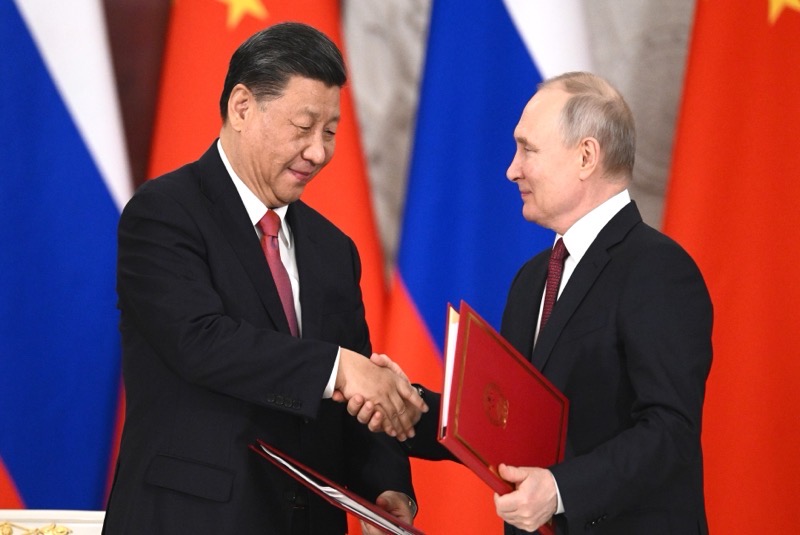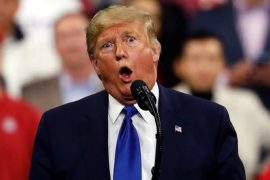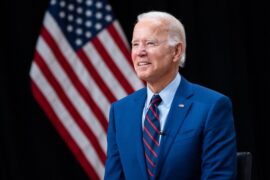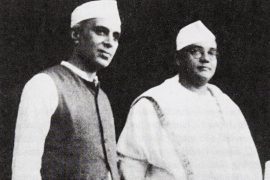President Putin’s recent visit to North Korea and, subsequently, to Vietnam has engendered much interest, more consternation and even more concern in Western capitals, starting from Washington. We must focus on the big picture rather than a particular visit or two. Reflection will show that an axis linking Russia and China has formed, to which Iran and North Korea have been moving closer, primarily owing to President Biden’s avoidable policy errors.
President Putin was in Pyongyang, a capital seldom visited by foreign leaders, on 18 June. The reception was rather industriously choreographed. Putin and North Korean leader Kim Jong Un signed a mutual defence agreement, and Putin made it clear that Russia would supply military technology to North Korea. There was no public announcement about North Korea sending weapons to Russia for use in Ukraine. Kim Jong Un publicly supported Russia in its war against Ukraine.
North Korea has reportedly put out the text of the pact, but it seems it is not yet available in English. However, the moot question is: will Russia supply weapons to North Korea now or only when and if it is attacked? North Korea has claimed that the 1961 treaty has been virtually revived. Article 1 of that treaty says:
Should either of the Contracting Parties suffer armed attack by any State or coalition of States and thus find itself in a state of war, the other Contracting Party shall immediately extend military and other assistance with all the means at its disposal.
In this context, we may recall that after the Korean War—which ended in 1953 with an armistice agreement—there has not been any peace treaty, primarily because Washington wanted to retain troops in South Korea, and a peace treaty might not have permitted that. In fact, North Korea chose to opt for nuclear weapons mainly because there was no peace treaty.
While exact information is not yet available, there is reason to believe that for a while, North Korea has been sending drones to Russia. The Pentagon has claimed that analysis of images of debris ‘confirms that Russia has fielded North Korean missiles’ in Ukraine. Therefore, it is intriguing that Washington should express such concern over the Putin visit as though arms will flow to Russia after this visit, making a difference to the military situation.
The Guardian Global quoted U.S. officials as being ‘incredibly concerned.’ Why is Washington playing up the importance of the visit? Is it to suggest that Biden’s policy had not pushed North Korea towards Russia over time?
South Korea, too, is showing that it has been rather surprised by the Putin visit. South Korea summoned the Russian ambassador and made it clear that if Russia supplied arms to North Korea, Seoul would send lethal weapons to Ukraine. Putin has warned Seoul that it will be a ‘big mistake’ to send weapons to Ukraine. Putin can wait till Seoul sends weapons to Ukraine and then publicly announce his sending weapons to Pyongyang.
While South Korea has claimed that it has till now sent only non-lethal material to Ukraine, it is known that the U.S. has bought artillery shells from South Korea. It is unknown whether the Pentagon sent the shells to Ukraine or replenished its stock. But that does not matter, as shells are as fungible as money is.
There is a renewed call within South Korea to go nuclear. We know of a similar demand from sections of society in Japan, too. If Seoul goes nuclear, Tokyo will likely follow, and vice versa.
Andrei Kartapolov, the head of the Russian lower house of parliament’s defence committee, was quoted by state news agency RIA as saying that if threats increased, the decision-making time for using such weapons could be changed.
Meanwhile, some Western pundits have said that China might be worried over Putin’s visit to Pyongyang. ‘China has certain reservations regarding North Korea’s deepening military cooperation with Russia, which could undermine Beijing’s near monopoly of geopolitical influence over Pyongyang,’ said Tong Zhao of the Carnegie Endowment for International Peace. ‘China is also careful not to create the perception of a de facto alliance among Beijing, Moscow, and Pyongyang, as this will not be helpful for China to maintain practical cooperation with key Western countries,’ Zhao said.
Let us assume, for argument’s sake, that China has reservations. But does it mean that the China-Russia axis is going to collapse? No. The axis is only getting stronger. We must look at the big picture and consider what has been happening in the triangular relationship between Washington, Beijing, and Moscow.
China’s export-led GDP growth would not have occurred without joining the WTO in December 2001. It would not have joined the WTO without normalising its relations with the U.S., for which President Nixon took the initiative in the early 1970s. He wanted to strengthen China as a counterweight to the USSR.
China and the USSR had been allies for a long time. However, in 1961, the Allies split, and there was a brief border war in 1969. After the Soviet Union collapsed, bilateral relations improved. In 2001, they signed the Treaty of Good-Neighbourliness and Friendly Cooperation.
Nevertheless, China did not support Russia when it attacked Georgia in 2008. As the U.S. started an economic warfare against China and imposed sanctions on Russia after it annexed Crimea in 2014, Moscow and Beijing fortified their relations. China might not have supplied weapons to Russia in its war against Ukraine. However, it has given stout diplomatic support and, according to Washington, has supported the military-industrial base of Russia.
Why would China do that? The answer is simple. China knows that if and when Russia goes down, China will be the next target if tension builds up in the South China Sea or across the Taiwan Straits. China would need Russia’s support to capture Taiwan.
Iran is moving towards the Russia-China axis, mainly because of Washington’s policy on sanctions. Obama lifted the sanctions, Trump reimposed them, and Biden, who, as a candidate, said he would lift them, has pursued Trump’s policy.
Could Washington have avoided the formation of the China-Russia axis, which might soon include Iran and North Korea? Yes.
Washington has been singling out China for years as its rival in its official documents, such as the periodical strategic review. Secretary of State Anthony Blinken said that the U.S. would work with China where it is to America’s advantage and contest and even confront it as necessary. He believes that he can cherry-pick and his Chinese counterpart cannot. Such an attitude is not part of good diplomacy.
Biden has publicly called Putin ‘a killer’ and Xi Jinping’ an autocrat’. Is this diplomacy?
In short, while Washington could not have done much to prevent a Sino-Russia axis, it need not have accelerated it by leaving them no other choice. Inept diplomacy has its consequences.
-30-
Copyright©Madras Courier, All Rights Reserved. You may share using our article tools. Please don't cut articles from madrascourier.com and redistribute by email, post to the web, mobile phone or social media.Please send in your feed back and comments to [email protected]











